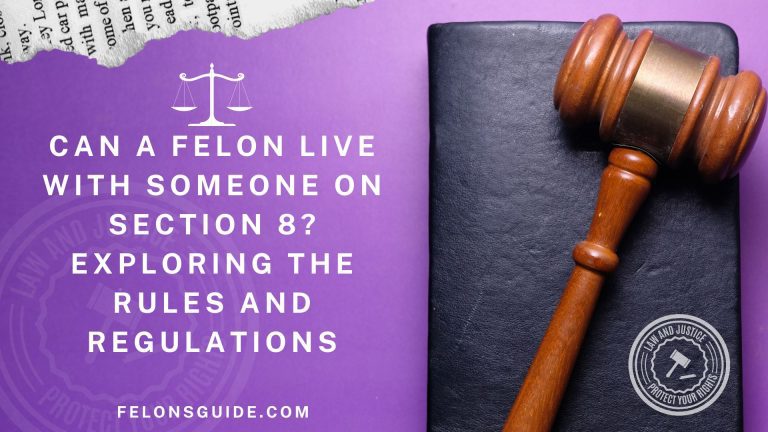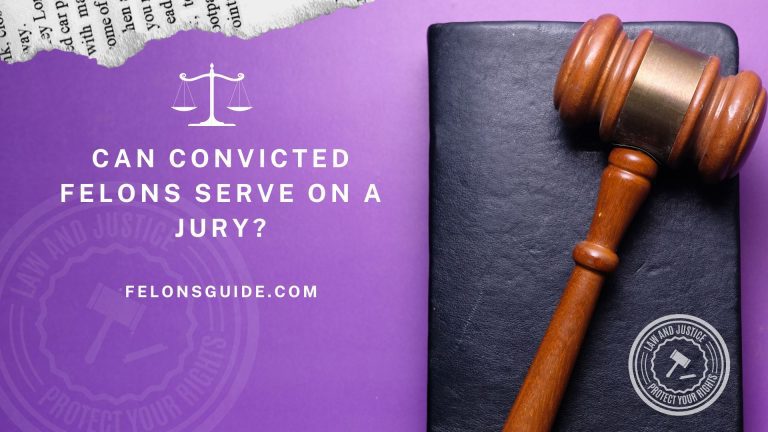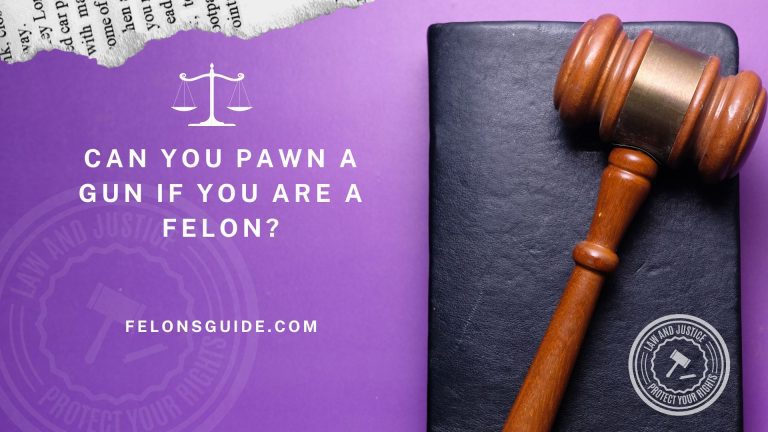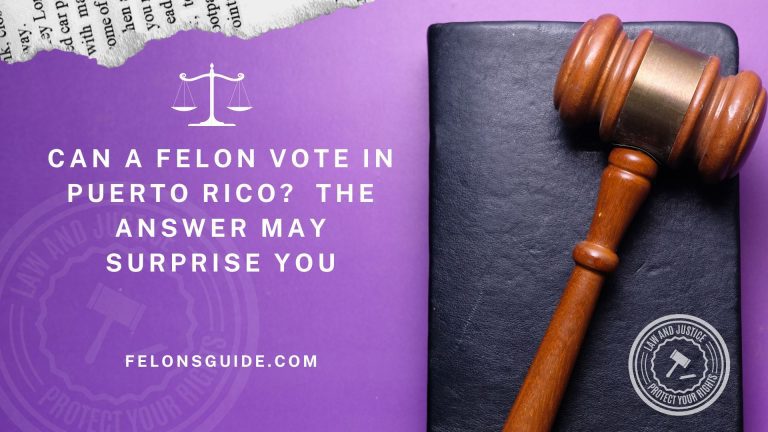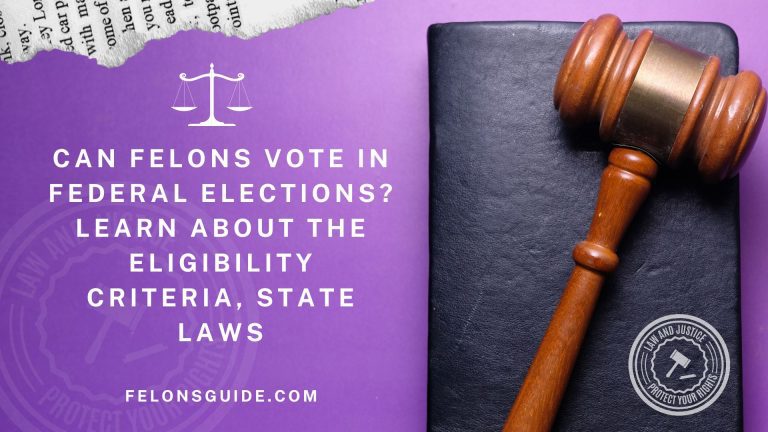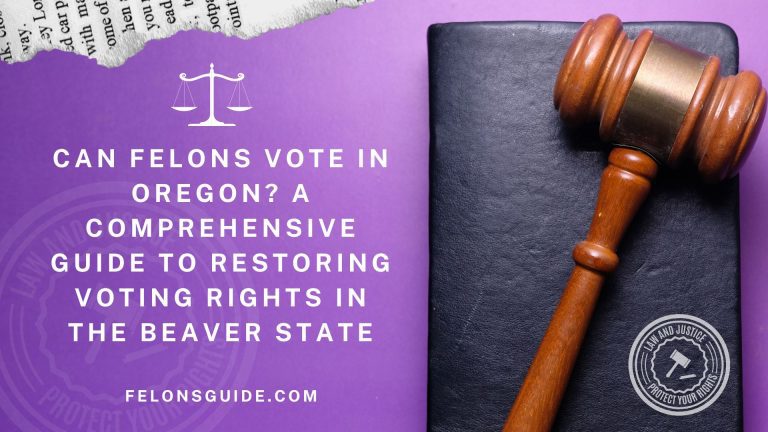Can Felons Purchase Ammunition: Understanding Laws & Regulations
Can Felons Purchase Ammunition: Understanding Laws & Regulations – As you enter the realm of purchasing ammunition, the legal and criminal implications may be perplexing. For felons, the uncertainty surrounding their right to purchase ammunition can be overwhelming, with some believing that it’s an absolute prohibition, while others argue it’s their constitutional right. In this article, we’ll dive into the complex and nuanced laws surrounding felons’ ability to purchase ammunition, exploring the different factors that determine eligibility and the potential consequences of violating these laws. So buckle up, and let’s delve deeper into the fascinating and bewildering topic of felons and ammunition purchases.
Understanding Federal Law and Felons’ Right to Bear Arms
When it comes to felons and their right to bear arms, federal law can be a bit perplexing. Under the Gun Control Act of 1968, felons are typically barred from possessing firearms and ammunition, a measure aimed at curbing gun violence and keeping weapons out of the hands of those with criminal histories.
However, the law is far-reaching and applies to all felons, not just those convicted of violent or firearms-related offenses. This means that white-collar criminals, drug offenders, and others may be prohibited from possessing firearms and ammunition.
Exceptions to this rule exist, and felons may be able to regain their rights through a restoration process. Restoration methods vary by state and may require a court petition, governor’s pardon, or rehabilitation program completion.
It’s important to note that even if a felon’s right to possess firearms is restored, they may still face limitations, such as being unable to purchase firearms from licensed dealers. Additionally, state laws regarding felons and ammunition possession may differ, emphasizing the need for research into state-specific laws.
The issue of felons and firearms remains a contentious topic, with some arguing that felons should have the right to bear arms, while others emphasize the importance of public safety through firearm restrictions.
In conclusion, federal law prohibits felons from possessing firearms and ammunition, though restoration processes exist. It’s essential to research state laws and understand any restrictions or limitations that may apply. Ultimately, lawmakers and society must weigh the pros and cons of granting felons the right to possess firearms and ammunition.
State Laws and Regulations
When it comes to state laws and regulations on firearms possession by felons, things can get quite intricate and challenging to decipher. The specifics of each state’s laws can vary significantly, creating a high level of perplexity for those seeking to understand their rights and limitations.
In some cases, state laws may also vary depending on the severity of the felony offense, with more serious offenses resulting in stricter restrictions on firearms and ammunition possession. Additionally, the process for restoration of firearms rights can vary widely from state to state, ranging from court petitions to gubernatorial pardons to the completion of rehabilitation programs.
Understanding the nuances of state laws and regulations on firearms possession by felons can be essential to ensure compliance and avoid potential legal consequences. It’s crucial to research the laws in your state thoroughly and seek professional legal advice if needed to ensure you’re on the right side of the law.
Overall, the complex and often confusing landscape of state laws and regulations on firearms possession by felons can create a significant level of uncertainty and confusion. It’s crucial to stay informed and seek professional guidance to navigate these complex legal waters successfully.
Also Read: Can a Felon Marry a Foreigner? Legal Requirements and Considerations Explained
Exceptions and Possibilities
As previously mentioned, federal law generally prohibits felons from possessing firearms and ammunition. However, there are some exceptions and possibilities that exist for felons to regain their right to bear arms.
One possible exception is through a process called restoration of rights. This process varies by state and can involve petitioning a court, obtaining a pardon from the governor, or completing a rehabilitation program. If successful, the felon may regain their right to possess firearms and ammunition.
Another possibility is that some states have their own laws regarding felons and firearms possession that may differ from federal law. It’s important to research the laws in your specific state to understand any potential exceptions or possibilities.
It’s also worth noting that even if a felon’s right to possess firearms is restored, they may still face limitations and restrictions. For example, they may not be able to purchase firearms from licensed dealers, or they may only be allowed to possess certain types of firearms.
Furthermore, private sales of firearms are not regulated by federal law, meaning that felons may be able to purchase firearms through private sales even if they are prohibited from doing so through licensed dealers. However, it’s important to note that some states have their own laws regarding private sales that may restrict or prohibit felons from purchasing firearms through this method.
Tips for Felons Interested in Purchasing Ammunition
Felons who are interested in purchasing ammunition may face significant challenges due to federal and state laws. However, there are some tips and guidelines that they can follow to increase their chances of legally obtaining ammunition.
Firstly, felons should research the laws in their state regarding ammunition possession. Some states may have strict restrictions on ammunition purchases, while others may have more lenient laws. It’s crucial to understand the laws and limitations in your state before attempting to purchase ammunition.
Secondly, felons should consider applying for a restoration of rights process if available in their state. This process can allow them to regain their right to possess firearms and ammunition. However, this process can be lengthy and challenging, requiring extensive paperwork and court proceedings.
Thirdly, felons should consider purchasing ammunition from a private seller rather than a licensed dealer. Federal law prohibits licensed dealers from selling ammunition to felons, but private sellers may not be subject to the same restrictions. However, it’s important to note that purchasing ammunition from a private seller may still be illegal under certain state laws.
Finally, felons should consider seeking legal advice before attempting to purchase ammunition. An experienced attorney can provide guidance on the laws and regulations in your state and advise you on the best course of action.
In conclusion, purchasing ammunition as a felon can be a complicated and challenging process. However, by researching state laws, considering restoration of rights processes, purchasing from private sellers, and seeking legal advice, felons can increase their chances of legally obtaining ammunition. It’s important to prioritize safety and compliance with the law to avoid facing further legal consequences.
